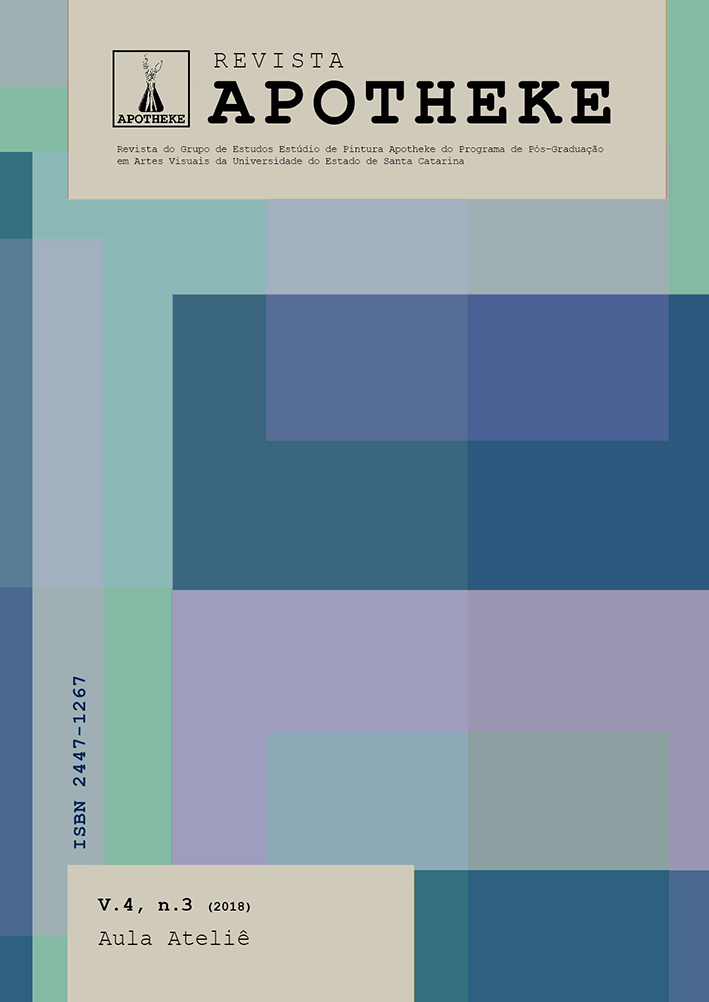Dewey, Ford e Monteiro Lobato: Os princípios da eficiência e da continuidade no olhar da filosofia e da literatura
DOI:
https://doi.org/10.5965/24471267432018029Keywords:
Dewey, Monteiro Lobato , Ford , O presidente negro , continuidade , educaçãoAbstract
O artigo discute a representação da pessoa e da obra de Henry Ford, no romance O Presidente Negro de Monteiro Lobato. Pela interpretação do texto literário, formula o ideário fordista com o princípio da eficiência. Propõe criticamente o princípio da continuidade, originário da filosofia de John Dewey, como alternativa ao fordismo, para fundamentar a reflexão sobre a educação e a vida social. Emprega a literatura como instrumento de reflexão e atribuição de significado, conforme a teoria deweyana da continuidade entre a experiência estética e intelectual. As conclusões têm relevância para as questões sociais e educacionais da contemporaneidade, além de abrir um campo de estudos sobre a função da literatura em uma forma de educação que promova o crescimento da vida compartilhada. Formula, a partir de Dewey, uma crítica ao fordismo e às formas mecanicistas de organização da vida social, incluindo a educação.
Downloads
References
BARTHES, Roland. Aula - Aula inaugural da cadeira de Semiologia Literária do Colégio de França. São Paulo: Cultrix. 2000.
BIESTA, Gert. “The Communicative turn in Dewey’s Democracy and Education”. In: HANSEN, David (ed.) John Dewey and Our Educational Prospect. Albany: State University of New York Press. 2006.
DENNETT, Daniel. (1995). A perigosa ideia de Darwin. Rio de Janeiro: Rocco. 1998.
DEWEY, John. (1925). Experience and Nature. London: Allen & Unwin Ltd. 1929.
DEWEY, John. (1933). Como Pensamos. São Paulo: Cia Editora Nacional, 1979. ed.).
DEWEY, John. Democracy and education. the middle works of John Dewey – 1899-1924. Volume 9:1916. Carbondale: Southern Illinois University Press. 2008.
DEWEY, John. (1938). Experiência e educação. Petrópolis: Vozes. 2010.
DEWEY, John. (1925). Arte Como Experiência. São Paulo: Martins Fontes. 2010b.
ECO, Umberto. Seis passeios pelos bosques da ficção. São Paulo: Companhia das Letras. 1994.
FORD, Henry. Os princípios da prosperidade - Minha vida e minha obra, Hoje e amanhã, Minha filosofia da indústria. Trad. Monteiro Lobato. Rio de Janeiro: Brand. 1954.
HILÁRIO, Leomir Cardoso. “Teoria crítica e literatura: a distopia como ferramenta de análise radical da Modernidade”. In: Anu. Lit., Florianópolis, v.18, n. 2, p. 201-215. 2013.
HUXLEY, Aldous. (1932). Admirável Mundo Novo. São Paulo: Globo. 2002.
LOBATO, Monteiro. (1927). O presidente negro. São Paulo: Globo. 2009.
MATOS, José Claudio. “John Dewey e Aldous Huxley: o admirável e o impensável na formação social da mentalidade”. In: Conjectura, Caxias do Sul, v. 16, n. 3, set./dez. 2011.
MATOS, José Claudio. “A interpretação de textos e a formação da pessoa reflexiva – Sobre a concepção deweyana da leitura”. In: Educação e Filosofia. Uberlândia, v. 27, n. 54, p. 579-596, jul./dez. 2013.
MATOS e SILVA. “John Dewey e Monteiro Lobato: ambiente social e condições de crescimento no romance O Presidente Negro”. In: SABERES, Natal – RN, v. 1, n.8, 107-123, ago. 2013.
NUSSBAUM, Martha C. “Educação para o lucro, Educação para a Liberdade”. Revista Redescrições – Revista on line do GT de Pragmatismo e Filosofia Norte-americana. Ano I, número 1. 2009.
SAITO, Naoko. “Growth and Perfeccionism? Dewey after Emerson and Cavell”. In: HANSEN, David (ed.) John Dewey and Our Educational Prospect. Albany: State University of New York Press. 2006.
TEIXEIRA, Anísio. Aspectos americanos da educação – Anotações de viagem aos Estados Unidos em 1927. Rio de Janeiro: Editora UFRJ. 2006.
Downloads
Published
How to Cite
Issue
Section
License
Copyright (c) 2018 REVISTA APOTHEKE

This work is licensed under a Creative Commons Attribution-NonCommercial 4.0 International License.
Copyright and Licensing Policy
Authors of works submitted to Revista APOTHEKE authorize their publication in both print and digital formats exclusively for academic purposes. Reproduction is permitted, provided that the source is properly cited. Authors confirm the originality, authorship, and unpublished status of their manuscripts.
Articles published by the journal are freely available and intended for academic and non-commercial use only. All copyrights are transferred to the journal. The content of signed articles reflects the views of their respective authors and not the official position of Revista Apotheke. The author(s) agree to always cite the following reference when republishing or referring to the content originally published in Revista Apotheke:
“This article was originally published by Revista Apotheke in volume (insert volume), number (insert number), year (insert year), and is available at: http://www.revistas.udesc.br/index.php/APOTHEKE/index”
It is the sole responsibility of the authors to obtain written permission for the use of any material protected by copyright law included in their articles. Revista Apotheke is not responsible for copyright infringements committed by contributors.
Authors retain copyright and grant the journal the right of first publication, with the work licensed under a Creative Commons Attribution-NonCommercial License (CC BY-NC):
-
Attribution (BY): Licensees are allowed to copy, distribute, display, perform, and create derivative works, provided that proper credit is given to the author or licensor, in the manner specified.
-
NonCommercial (NC): Licensees may use the material only for non-commercial purposes.
After publication, authors retain the rights to their work and may republish the text.



